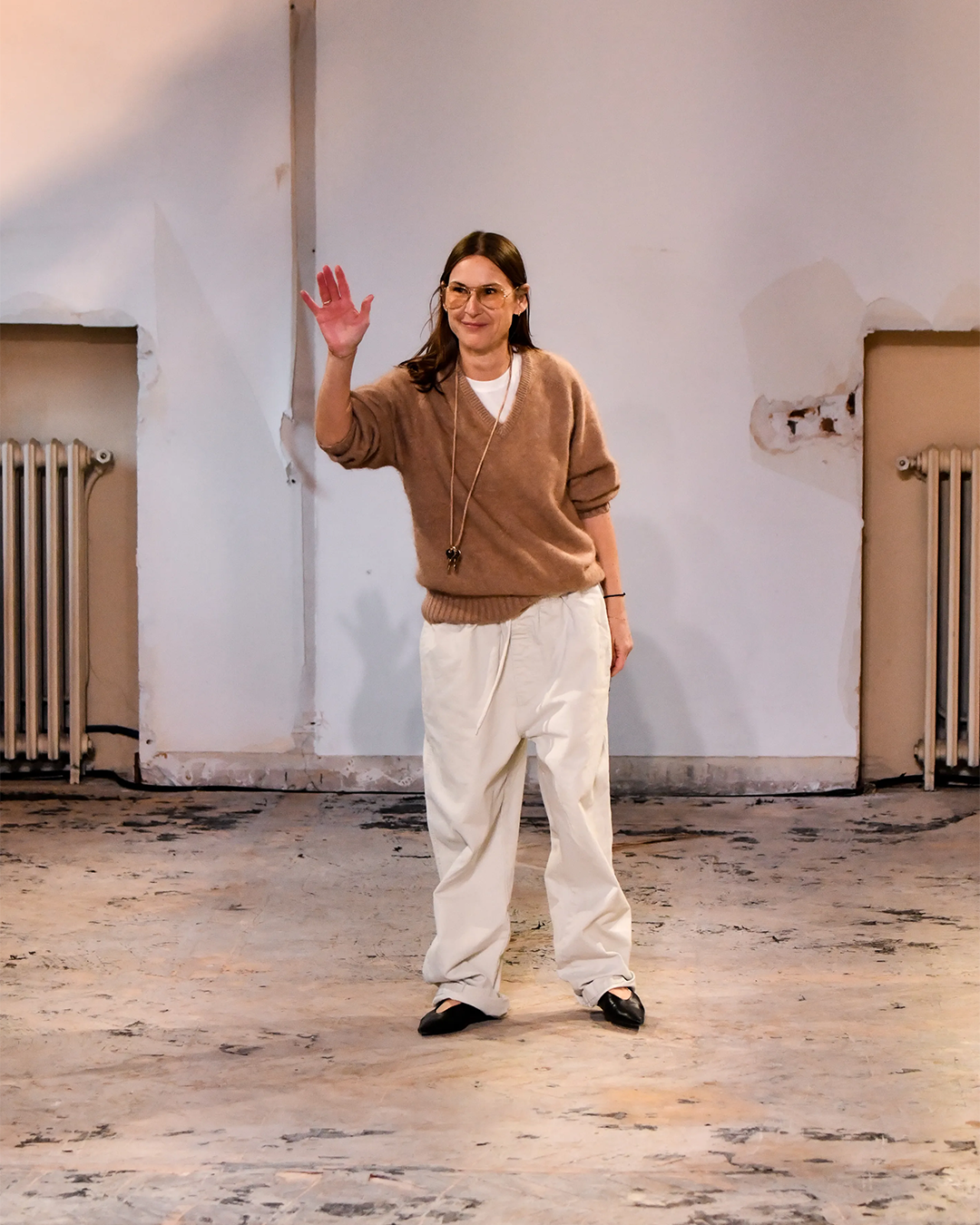
Peter Do's catwalk debut and the return of post-ironic fashion A turning point for fashion in the coming years
Yesterday in Greenpoint, Brooklyn, in an open area next to the East River, what was perhaps the most awaited show of New York Fashion Week was held: the catwalk debut of Peter Do. It was obviously not an absolute debut – the brand saw the light in 2018, with a presentation in Paris that immediately earned it contracts with nine large buyers including Net-a-Porter and Dover Street Market. Fast-foward to 2020: Peter Do is a finalist for the LVMH Prize (he already won the LVMH Graduate Award in 2014), Anya Taylor-Joy wears one of her dresses for the Saturday Night Live finale and both the lookbooks of the FW20 and SS21 collections are greeted with a unanimous enthusiasm of the press, buyers and the public.
Yesterday there was the new culmination: a collection in which the language of Peter Do is reworked and refined further, which seems minimalist but cannot be called minimalist if you look at the complexity of certain layering, the calculated and discreet extravagance of asymmetries and oversized elements, but also the maturity of a series of ageless looks. In all this, one can also observe references and subtle quotes to an eclectic but coherent and above all vaguely nostalgic aesthetic universe: first of all to Phoebe Philo, for whom Do worked during the glorious years of Céline; then the 90s shows of Tom Ford's Gucci in the use of flowing and suggestive silhouettes; then again to Margiela and Prada. But above all, Peter Do is himself – as he has been since the beginning.
Starting off with the right foot
At yesterday's fashion show some of the best looks were based on the culture of origin of Do, who is Vietnamese, and who brought, among the female classics of his collection, the áo dài, the traditional dress of Vietnam which consists of a silk dress tightened at the waist that is worn over the trousers – the version of Do is located at the confluence of personal experiences and memories and trends such as that of gender neutrality (l'ào dài it is in fact a dress that, with minimal variations, is also worn by men) and also of the return of Y2K fashion, when dresses and jeans were often paired with horrible results on many red carpets. Do referred to his past to explain his collection and design philosophy – comparing the collection to pho, a traditional Vietnamese broth whose preparation takes several hours. Do and his father, immigrants in Philadelphia, cooked it together: «A good Pho is reduced and edited, to an essencee. It is comforting and it feels like home… Welcome to our home». Instead of composing pompous programmatic pamphlets, Do's team distributed the handwritten show notes by hand to the public – another personal touch that outlines even better the modus operandi of the brand that has found success in bypassing the now indigestible conventions of marketing. The FW21 campaign, for example, uses the brand's own team (including Peter Do) as models and does so on the roof of a New York building – it's refined, self-produced, simple but, above all, it's truthful and honest.
Interviewed by WWD in 2018, shortly after his debut, which took place without print, without presentations, without anything remotely close to PR, Do said: «This whole brand was put together by word-of-mouth and Instagram. I’m quite active on there and post process photos and behind-the-scenes. A lot of buyers said they felt like they’ve known the company for so long because they saw me build the shelves, the table, saw the team go to Ikea. That’s the only PR thing we’ve been doing». At that time Peter Do had only 45,000 followers on Instagram, today they have become 405,000. Which brings us back to why Peter Do has achieved the success he has had and will achieve even more in the coming years: fashion is in desperate need of honesty. When there is an author whose personality and aesthetics can be explored with transparency and honesty, who tells himself without unnecessary self-mythologies, interest is triggered. When the product is of quality, when the inspiration is pure and honest and especially when the brand focuses on what matters and not on marketing, advertising is useless. Peter Do's own customers talk about the brand and, within a few years, even before arriving on the actual catwalk, his collections already cause sensation.
A post-ironic fashion
Before interviewing Peter Do last January, Kat Herriman of Cultured made an important reflection that explains Do's rapid success and, transversely, also the success of the former pupils of Phoebe Philo da Céline, including Daniel Lee of Bottega Veneta. According to Herriman we are at a turning point where the ironic fashion trend that in 2015 exploded with Demna Gvasalia and Alessandro Michele, who respectively quoted and parodied the aesthetic codes of the working class and the upper middle class, is about to end - the market is so saturated with brands that want to look special that no one has focused on being special anymore. Today the trend is reversed: the success of brands such as Bottega Veneta, The Row and Peter Do himself, but also the revival of the Armani archive and brands such as Loro Piana and Brunello Cucinelli, highlights the start of a post-ironic fashion, which no longer wants to be paradoxical and quotationist but focus on the final product, on the very nature of fashion that, in the most basic terms possible, it consists of creating and selling clothes. In 2018, prophetically, Peter Do explained to WWD:
«I think it’s time to get back to garment making, producing things in New York, supporting the craft, supporting locals, authenticity, making clothes. I feel like nobody creates clothes anymore, everyone creates hype».















































































